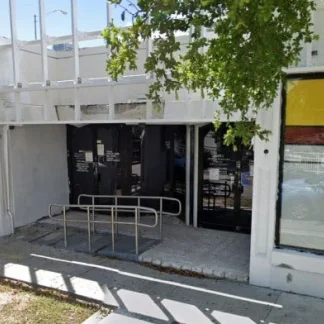WestCare - Village South - 4th Avenue
WestCare Village South is a women’s-only rehab facility in Miami, Florida that o...
Borinquen Medical Centers - Behavioral Health Resource Center, located in Miami, Florida, provides mental health treatment and behavioral health treatment. For those seeking addiction recovery, they also offer alcohol and drug rehab referrals to outside organizations.
Borinquen Medical Centers – Behavioral Health Resource Center offers a wide variety of services that help address the mental, emotional, and physical aspects of mental health. Each person is provided a personalized treatment plan that suits their individual needs for treatment. Services are provided on an outpatient basis.
The outpatient program is suitable for people who do not need a high level of supervision or support. Individual therapy, group therapy, family therapy, and couples counseling are provided. Additional services include case management, psychiatric evaluations, psychiatric care, psychiatric medications, outpatient addiction treatment, and HIV/AIDs treatment. Clients may engage in treatment for as long as necessary.
Contact us for more information: (305) 576-1599

Connect with Borinquen Medical Centers - Behavioral Health Resource Center by calling their admissions team directly.
(305) 576-1599 Website Get DirectionsCognitive Behavioral Therapy (CBT) is a therapy modality that focuses on the relationship between one's thoughts, feelings, and behaviors. It is used to establish and allow for healthy responses to thoughts and feelings (instead of unhealthy responses, like using drugs or alcohol). CBT has been proven effective for recovering addicts of all kinds, and is used to strengthen a patient's own self-awareness and ability to self-regulate. CBT allows individuals to monitor their own emotional state, become more adept at communicating with others, and manage stress without needing to engage in substance abuse.
Research clearly demonstrates that recovery is far more successful and sustainable when loved ones like family members participate in rehab and substance abuse treatment. Genetic factors may be at play when it comes to drug and alcohol addiction, as well as mental health issues. Family dynamics often play a critical role in addiction triggers, and if properly educated, family members can be a strong source of support when it comes to rehabilitation. Family sessions can also be scheduled for those who want to involve their family into the treatment. However, it is not mandatory.
Group therapy is any therapeutic work that happens in a group (not one-on-one). There are a number of different group therapy modalities, including support groups, experiential therapy, psycho-education, and more. Group therapy involves treatment as well as processing interaction between group members.
In individual therapy, a patient meets one-on-one with a trained psychologist or counselor. Therapy is a pivotal part of effective substance abuse treatment, as it often covers root causes of addiction, including challenges faced by the patient in their social, family, and work/school life.
Research clearly demonstrates that recovery is far more successful and sustainable when loved ones like family members participate in rehab and substance abuse treatment. Genetic factors may be at play when it comes to drug and alcohol addiction, as well as mental health issues. Family dynamics often play a critical role in addiction triggers, and if properly educated, family members can be a strong source of support when it comes to rehabilitation. Family sessions can also be scheduled for those who want to involve their family into the treatment. However, it is not mandatory.
Group therapy is any therapeutic work that happens in a group (not one-on-one). There are a number of different group therapy modalities, including support groups, experiential therapy, psycho-education, and more. Group therapy involves treatment as well as processing interaction between group members.
In individual therapy, a patient meets one-on-one with a trained psychologist or counselor. Therapy is a pivotal part of effective substance abuse treatment, as it often covers root causes of addiction, including challenges faced by the patient in their social, family, and work/school life.
Group therapy is any therapeutic work that happens in a group (not one-on-one). There are a number of different group therapy modalities, including support groups, experiential therapy, psycho-education, and more. Group therapy involves treatment as well as processing interaction between group members.
In individual therapy, a patient meets one-on-one with a trained psychologist or counselor. Therapy is a pivotal part of effective substance abuse treatment, as it often covers root causes of addiction, including challenges faced by the patient in their social, family, and work/school life.
In individual therapy, a patient meets one-on-one with a trained psychologist or counselor. Therapy is a pivotal part of effective substance abuse treatment, as it often covers root causes of addiction, including challenges faced by the patient in their social, family, and work/school life.
WestCare Village South is a women’s-only rehab facility in Miami, Florida that o...
Adaptive Center - Coral Way is an addiction treatment center that offers freedom...
Brave Health is a private rehab located in Miami, Florida. Brave Health speciali...
Douglas Gardens Mental Health Center offers outpatient and inpatient treatment f...